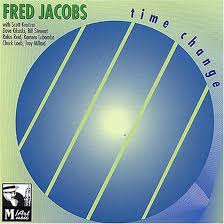The Influence of Dana White in Mixed Martial Arts
Introduction
Dana White, the president of the Ultimate Fighting Championship (UFC), has been a pivotal figure in the evolution of mixed martial arts (MMA) into a mainstream sport. His leadership and vision have not only shaped the UFC but have also transformed the perception of MMA around the world. As the UFC continues to grow in popularity, understanding White’s role and influence becomes increasingly important.
Background and Rise to Prominence
Born on July 28, 1969, Dana White’s journey in sports management began in the early 1990s when he started managing fighters and promoting events in the MMA circuit. In 2001, he played a crucial role in purchasing the UFC, which was struggling at the time. Under White’s direction, the organization has expanded exponentially, acquiring a global audience and securing lucrative broadcasting deals, including a multi-billion dollar deal with ESPN.
Innovations in Promotion and Marketing
White’s innovative approach to promoting MMA has fundamentally changed how combat sports are marketed. The introduction of The Ultimate Fighter reality show in 2005 provided the UFC with a platform to highlight fighters and build their personal brands. This was a turning point, bringing in new fans and increasing the sport’s visibility. Today, UFC events draw millions of viewers worldwide, and pay-per-view numbers consistently break records.
Impact of Controversies
While White’s leadership has been mostly praised, it has not been without controversy. His brash style and outspoken nature often ignite debates within sports circles. Issues such as fighter pay, safety regulations, and comments regarding other promotions have sparked criticism. However, White has remained steadfast, building a loyal following among fans who admire his unapologetic demeanor and commitment to the sport.
The Future of UFC Under White
As of 2023, the UFC is positioned as a leader in combat sports, and White continues to be an influential figure in the organization. The upcoming years will likely see more international events, expansions into new markets, and increased opportunities for fighters to showcase their talents. White’s ability to adapt to an evolving sports landscape will be crucial in maintaining the UFC’s dominance in the industry.
Conclusion
Dana White’s influence on the UFC and the broader mixed martial arts landscape cannot be overstated. His vision has not only propelled the UFC to unprecedented heights but also altered the way combat sports are viewed globally. As the organization moves forward, the future promises more excitement for fans and fighters alike, solidifying White’s legacy as a key figure in the world of sports management.









